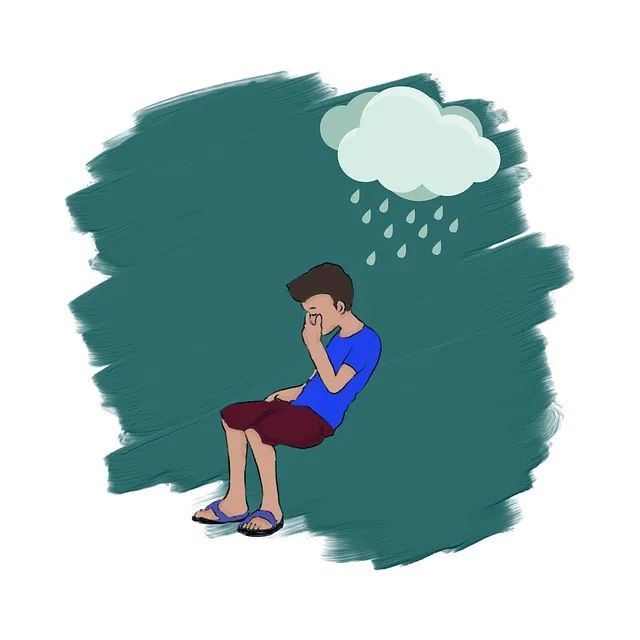Kaiser Permanente's inpatient mental health program in Boulder, Colorado, utilizes RFM (Resilience, Flexibility, Mastery) models to revolutionize treatment. By focusing on self-care, trigger recognition, and tailored coping strategies, patients gain tools for emotional well-being. This holistic approach, including group therapy and art/music sessions, enhances resilience, reduces stigma, and sets a benchmark for effective inpatient care and community support in mental health recovery.
“Discover how Resilience-Focusing Measurement (RFM) and structured resilience-building exercises are transforming mental health rehabilitation. This article explores the critical role of RFM in enhancing patient outcomes, particularly within inpatient settings. We delve into the implementation process, highlighting a successful case study at Kaiser, a leading facility in Boulder known for its innovative approach to mental health care. Learn how these strategies foster resilience and promote long-term well-being among patients.”
- Understanding RFM and Its Role in Mental Health Rehabilitation
- Implementing Resilience-Building Exercises in Inpatient Settings
- The Kaiser Experience: A Case Study of Effective Implementation in Boulder
Understanding RFM and Its Role in Mental Health Rehabilitation

Resilience is a key factor in mental health recovery, and RFM (Resilience, Flexibility, and Mastery) models offer a structured approach to enhancing it. These models focus on developing individuals’ ability to adapt and bounce back from challenges, stress, or trauma, which are essential components of inpatient mental health programs, including those provided by facilities like Kaiser in Boulder. By integrating RFM into mental health rehabilitation, patients gain valuable tools to navigate their emotional experiences more effectively.
This approach emphasizes self-care routine development as a means to foster better mental health. It encourages individuals to cultivate emotional intelligence, understand their triggers, and implement coping strategies tailored to their needs. Additionally, designing mental health education programs around RFM principles can empower patients with knowledge and skills, promoting long-term wellness and resilience. These programs aim to equip folks with the resources needed to confront and overcome life’s difficulties.
Implementing Resilience-Building Exercises in Inpatient Settings

Implementing Resilience-Building Exercises in Inpatient Settings plays a pivotal role in enhancing the emotional well-being promotion techniques for patients within mental health facilities, including Kaiser’s inpatient mental health centers in Boulder. These exercises not only equip individuals with coping mechanisms but also foster a sense of safety and support, crucial for effective recovery. By integrating activities that encourage self-awareness, stress management, and empathy building strategies, healthcare professionals can significantly impact the overall therapeutic experience.
Risk assessment for mental health professionals is an essential aspect of creating a secure environment where resilience exercises can thrive. Through structured programs, staff members learn to identify and navigate complex patient dynamics, ensuring every individual receives tailored care. This holistic approach, which incorporates both emotional well-being promotion techniques and empathy building strategies, has been shown to revolutionize inpatient treatment, offering lasting benefits for both residents and practitioners alike.
The Kaiser Experience: A Case Study of Effective Implementation in Boulder

In Boulder, Colorado, the Kaiser Experience stands out as a compelling case study showcasing effective implementation of resilience-building exercises and mental health support services. This initiative, led by Kaiser Permanente, focuses on providing comprehensive care for individuals struggling with mental illness. The program goes beyond traditional inpatient treatment by integrating self-awareness exercises into the community outreach program implementation. Through these efforts, Kaiser aims to reduce the stigma associated with mental illnesses and foster a more inclusive environment where individuals can openly seek help.
The Kaiser Experience leverages a multi-faceted approach, combining group therapy sessions, individual counseling, and creative outlets like art and music therapy. By engaging participants in these activities, the program encourages self-expression and emotional understanding. This holistic strategy has proven effective in building resilience among those facing various mental health challenges. The successful integration of these initiatives in Boulder underscores the potential for widespread adoption, highlighting the significance of community outreach program implementation and mental illness stigma reduction efforts.
Resilience is a powerful tool for recovery, and as demonstrated by the Kaiser experience, implementing RFM and resilience-building exercises in inpatient settings can lead to significant improvements in mental health rehabilitation. By fostering a culture of strength and adaptability, these strategies have the potential to transform lives, especially in dynamic environments like Boulder’s inpatient mental health facilities. Incorporating evidence-based practices, such as those employed by Kaiser, offers hope and healing for individuals navigating challenging journeys towards well-being.






